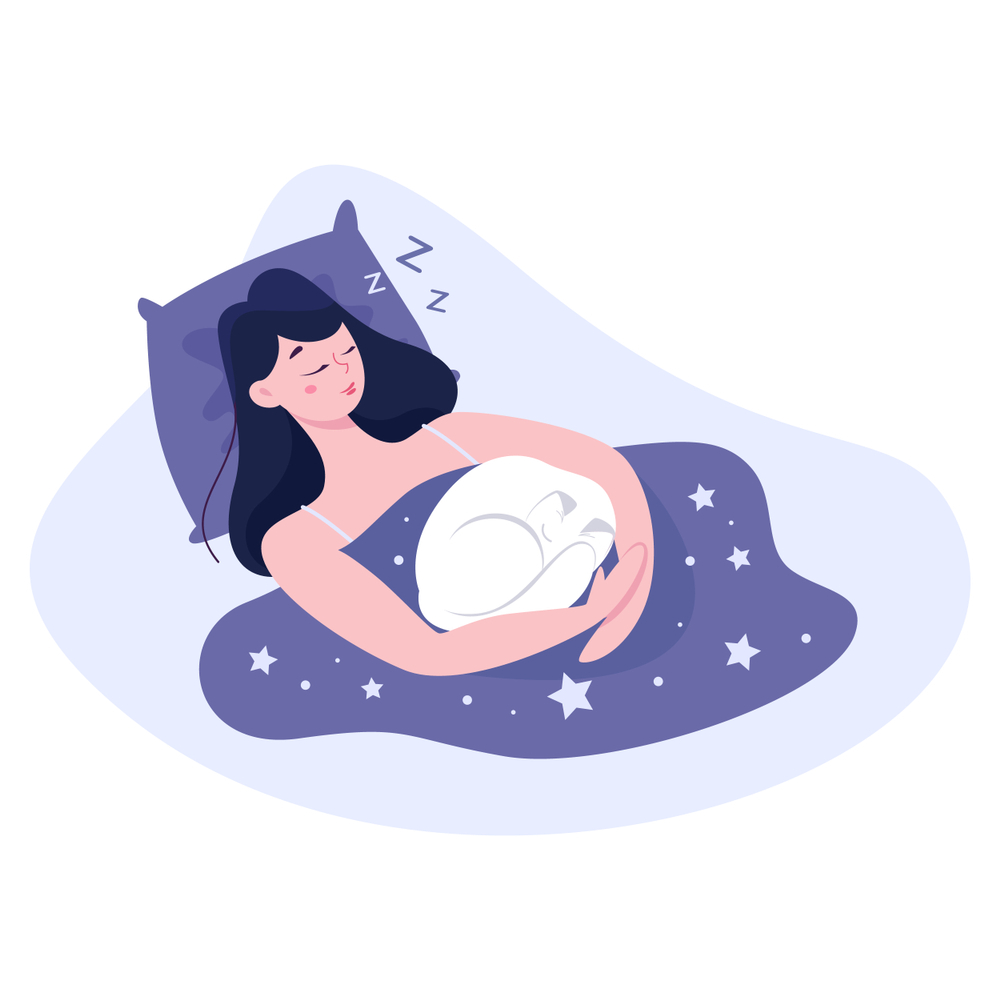The Importance of Sleep on Reproductive Health
During sleeping hours your body continues working actively, at night, the endocrine system ensures that all the hormones within the body function properly including the reproductive hormones. Although there is a need to do more research on the association between sleep and reproductive health. Still, reliable and available studies have found that a long period of inadequate or quality rest can affect certain hormones in the body, resulting in irregularities capable of making conception harder among couples.
According to a study published by Science Direct1, infertility is shown to be associated with long working hours among workers, especially young-aged women. Another study also shows that sleep can affect men’s reproductive health, and comparing both studies show that lack of sufficient sleep affects both men. In men, the most affected hormone is testosterone, which is normally produced when asleep.
Clinical studies2 carried out to figure out the effects of sleep on male fertility have shown that insufficient amount of sleep can affect the production of sperm, impair, and reduce sperm mobility. Moreover, having too much (more than nine hours) or little (less than six hours) of sleep can reduce your chances of getting your partner pregnant.
What is the Relationship between Sleep Hormones and Hormones of the Reproductive System?
Today, most people spend less time getting a good night's sleep. This should be a thing of concern as it’s gradually becoming normal, especially among young adults. The effects of poor sleep have been shown to have implications on fertility levels. Apart from this, below are other implications of inadequate sleep to your reproductive health.
Improve Fertility
Regardless of your gender, a part of the brain contains hormones (melatonin and cortisol) which are respectively responsible for sleeping and awakening. The same region of the brain also aids in the activation of the reproductive hormones, this means that when there is an interruption of its role, the chances of reducing your fertility increase.
Enhance Ovulation
The hormones found within the reproductive system and sleep are bound to each other; those that aid ovulation in women, and those that aid in the maturation of sperms in men depends on the sleep-wake pattern of the body. For example; if a woman lacks sufficient sleep for a long period, it can affect the function of the luteinizing hormone in the body. This may further result in irregular menses that can make conception really complex.
Hormone Imbalance
Long-term effects of sleep can result in hormone imbalance, resulting in irritability, mood swings, and increased risks of diseases and conditions that may reduce the fertility rate. Being irritable and having mood swings can be a very depressing and difficult situation for any partner to handle, this makes the relationship environment toxic and unbearable for your partner; hence resulting in fewer chances of conception to occur.
Lack of enough sleep can increase your chances of getting different diseases and conditions that interfere with the reproductive system. Some of these diseases and conditions include obesity, high blood pressure; and other diseases that cause oxidation and inflammatory responses within the body leading to reduced fertility.
Practical Steps to Improve Sleep Quality
Every day, sleep specialists try to discover newer methods, treatments, and lifestyle changes that people can incorporate into their lives to ensure daily good night's sleep. Still, you need to know that there is no single approach or standard to improve sleep patterns. However, here are some of the tricks that you can apply to improve their sleeping patterns.
- Have a regular sleeping schedule: A consistent sleep time can help you develop a healthy pattern. Going to bed at the same time every night and waking up at the same time every morning helps improve the quality of sleep.
- Being physically active: Participating in physical activities such as aerobic exercises every day has been shown to improve one’s cardiovascular health, and also assist in getting better sleep.
- Reduce the intake of alcohol and caffeinated drinks: This has been shown to help in improving the quality of sleep. For instance, having fewer amounts of caffeine in the evening can make it easier to fall asleep. Consuming too much alcohol can interfere with your sleep patterns; hence, you need to practice moderate drinking.
- Avoid odd working hours as much as possible: Working shifts have been shown to interfere with fertility, therefore, if it is possible avoid those working hours.
- Learn to relax: Taking a few minutes to yourself before sleeping to reflect on your day can help in easing the mind and body, and further prepare you for sleep.
Finally, these are some of the effects associated with not having enough sleep on their reproductive health, and some of the tips incorporated into your daily routines may improve fertility. However, it is crucial to take note of sleeping and fertility problems; if they persist, then it is time to visit a doctor in case of any medical condition.
Written by: Jackson Omanwa







Comments (0)